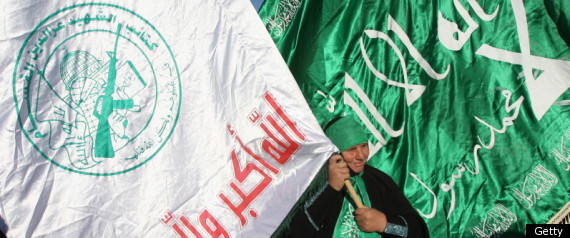High_Gravity
Belligerent Drunk
Hamas Joins Palestinian Liberation Organization

Hamas Joins Palestinian Liberation Organization

CAIRO The rival Palestinian factions Fatah and Hamas took an important step toward reconciliation on Thursday, announcing plans for the Islamic militants to join the umbrella group that has overseen two decades of on-and-off peace talks with Israel.
The deal to admit Hamas into the Fatah-dominated Palestine Liberation Organization could have deep repercussions. Hamas has opposed the peace talks and rejects Israel's right to exist. A strong Hamas voice in the group would further complicate the already troubled Mideast diplomatic process.
Israeli officials reacted with alarm to the emerging agreement.
Hamas overran Gaza in 2007, and Palestinian President Mahmoud Abbas, who is also the head of Fatah, has ruled only the West Bank since then. The division has been an obstacle in peacemaking efforts with Israel, since Abbas does not speak for all the Palestinians.
A full reconciliation could solve that or it could put Hamas in charge. The Islamist group won a parliamentary election in 2006, and a short-lived government Hamas formed with Fatah was shunned by Israel and the West, freezing peace efforts.
Under the agreement, Hamas' supreme leader, Khaled Mashaal, joined a committee that will prepare for elections of the PLO's parliament in exile. He will serve alongside Abbas.
"The reconciliation has taken off. It might take time, but we have started," said Azzam al-Ahmed, a top Fatah negotiator, after the talks in Cairo.
The election would clear the way for Hamas to become a full member of the body and gain an important voice in its decision making.
Any PLO election is likely years away because of logistics alone. The PLO represents all Palestinians, so the vote would have to include people spread throughout the world, including residents of refugee camps in Jordan, Syria and Lebanon. In addition, political battles are likely to hinder the process.
In a separate step toward reconciliation, the sides have tentatively agreed to hold separate elections next year in the West Bank and Gaza. That vote is meant to end the division and choose a single government for both territories, where Abbas hopes to establish an independent state.
On Thursday, Abbas issued a presidential decree naming a committee to oversee preparations for the local elections. Huge obstacles remain, most critically how to unify rival security forces that just a few years ago were battling each other.
Jibril Rajoub, a Fatah official and former West Bank security chief, said he was confident.
"There are difficulties ahead, but the train has left the station and no one can stop it," he said.
Israel objects to any Palestinian government that includes Hamas, a group that is committed to Israel's destruction and has killed hundreds of Israelis in suicide bombings, rocket strikes and other attacks.
Hamas has sent some signals that it might be willing to reach some sort of accommodation with Israel. The group has largely adhered to a cease-fire with Israel since a brief war three years ago, and Mashaal has said he would not stand in the way if Abbas decides to resume negotiations with Israel. It also has indicated willingness to accept a state in the West Bank and Gaza as a first step toward replacing Israel with an Islamic entity.
Israeli government spokesman Mark Regev rejected any suggestions that Hamas is becoming more moderate. He noted that the group reiterated its calls for Israel's destruction at its anniversary celebrations early this month.
"No one in the international community should have illusions as to Hamas," Regev said. "This is a movement that is terrorist to the core. When Abu Mazen walks toward Hamas, he's walking away from peace," he said, using Abbas' widely known nickname.
Hamas Joins Palestinian Liberation Organization

